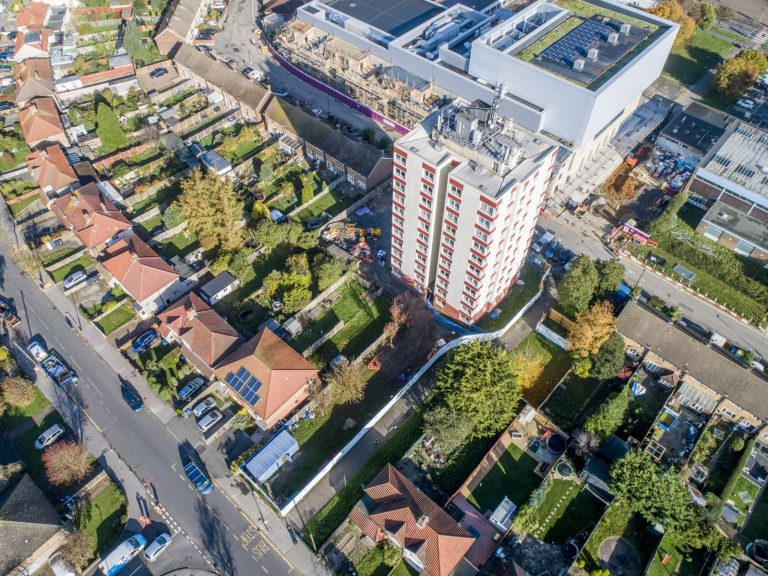As the Social Housing Decarbonisation Fund (SHDF) opens to applications, Kensa Contracting is urging local authorities and housing associations in England to act now and bid for a portion of the £160m available in 2021/22 to install highly efficient low carbon ground source heat pumps to tackle climate change and protect their tenants from fuel poverty. Ieman Barmaki, Director of Low Carbon Partnerships at Kensa Contracting, says: “We are very pleased to see ground source heat pumps included as a measure in this funding scheme which will help local authorities replace fossil fuel heating systems and deliver warm, energy-efficient homes whilst reducing carbon emissions and fuel bills. “It is critical that some of the most vulnerable in society can benefit from low cost and low carbon heating systems. There are currently 2.5m households across the UK in fuel poverty who are unable to afford adequate heating. This fund can make a significant impact on fuel poverty if ground source heat pumps are installed as part of the solution to place residents on a net zero pathway.” There is an 8-week application window for the first wave of SHDF funding bids, beginning on 23rd August and ending on 15th October. To help capitalise on this opportunity, Kensa Contracting will be delivering free CPD sessions showcasing the benefits of ground source heat pumps in social housing with large-scale retrofit case studies and demonstrating how the technology is eligible under the scheme. Local authorities are invited to register their interest here: https://kensa.group/shdf-cpd Kensa can also support local authorities in making a bid by delivering desktop feasibility studies of building stock to help identify ‘retrofit-ready’ projects, and providing estimates for the investment budgets and potential grant amounts needed for installing ground source heating systems. The UK government has committed to reducing emissions to net-zero by 2050, and over 10 years, the SHDF fund will potentially provide up to £3.8 billion in subsequent funding waves to encourage local authorities in England to retrofit measures such as low-carbon heating and insulation to increase energy efficiency and decarbonise their housing stock. The primary objective of the SHDF scheme is to upgrade a significant amount of England’s 4.1m social homes to an Energy Performance Certificate (EPC) rating of C by 2030. Currently, nearly 40% of properties fall below this, with fuel poverty posing a serious risk for residents when high fuel bills mean tough choices between heating or eating. Under the scheme’s guidelines, low carbon heating, including ground source heat pumps, can be installed where a ‘fabric first approach is taken’. Electrically-powered ground source heat pumps are sustainable, non-combustion devices generating no point of use emissions or pollution, and have been highlighted by government as a key part of the UK’s strategy to decarbonise heat, of which 37% of total UK carbon emissions are attributed to. Using freely available heat energy from the ground, a ground source heat pump can deliver 3 to 4 kilowatts (kW) of heat for every 1kW of electricity it consumes, making it highly efficient. While modern condensing boilers can be up to 90% efficient, a ground source heat pump can achieve efficiencies of 400%, without the carbon emissions or air pollution created by burning fossil fuels. The government’s 10-point-plan to put the UK back on track to meet its net-zero carbon target by 2050, states the aim to have 600,000 heat pump installations every year by 2028, and the Committee for Climate Change (CCC) has suggested this figure should even be increased to 900,000. This will require a massive scaling up of ground source heat pump installations, and Kensa believes that a Shared Ground Loop Array infrastructure is the key to achieving this. Shared Ground Loop Arrays are a modern-day renewable alternative to the traditional gas network that allow multiple properties to benefit from communal clusters of boreholes, with individual heat pumps installed inside each property. This approach is perfect for multiple occupancy dwellings such as tower blocks. The retrofit of a three tower-block scheme with Kensa Contracting and Croydon Council has been documented in a recently launched film here: https://kensa.group/shdf-croydon. The Croydon scheme provides a blueprint for the potential low-carbon retrofit of the 1.6 million flats in the UK, representing 41.8% of all households – a portion of which could be fast-tracked to warmer, greener, and cheaper homes through the Social Housing Decarbonisation Fund.






